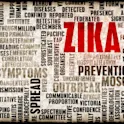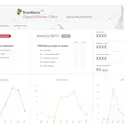Frontiers Communications
Editor
Editor

Life sciences
06 Apr 2016
By Tania FitzGeorge-Balfour, Science Writer The internet is overflowing with online tutorials dedicated to improving your game of golf and other motor skills. A new study in Frontiers in Psychology has shown that straightforward changes to the way these tutorials are presented can have a measurable difference in the performance of the student. “Lots of research has shown that observing both novice and expert golfers online will help you to learn a new golf shot. However, our latest findings show that it is important to know the level of expertise you are observing before you watch the tutorial,” said Luc Proteau, a Professor at the University of Montreal, co-author of this new study. Knowing students of online tutorials benefit from watching all levels of expertise, Luc Proteau and co-author Mathieu Andrieux set out to understand whether it was better to know beforehand the skill level of the demonstration, or if students should be first left to evaluate the performance themselves. Arguments were put forward to support both approaches – prior knowledge of the skill level may enable a student to decide whether to imitate or detect errors/weakness. Alternatively, assessing the skill of a performer while watching them may activate more […]
Robotics and AI
05 Apr 2016
By Abigail Pattenden, science writer In the world of robot communication, it seems actions speak louder than words. Scientists in the UK have discovered that by getting robot avatars to “talk with their hands,” we understand them as well as we do our fellow human beings. Avatars have been in existence since the 1980s and today are used by millions of people across the globe. They are big business too: from artificial intelligence to social media and psychotherapy to high-end video games, they are used to sell things, to solve problems, to teach us and to entertain us. As avatars become more sophisticated, and their use in society grows, research is focusing on how to improve communication with them. Getting your message across with your avatar is more important than ever, and learning how to improve this communication is a big deal. Scientists Paul Bremner and Ute Leonards took on this challenge in a recent study published in Frontiers in Psychology. They built their study around the hypothesis that if avatars were to use “iconic” hand gestures together with speech, we would understand them more easily. Iconic gestures have a distinct meaning, like opening a door or a book, […]

Climate action
05 Apr 2016
By Michelle Ponto, Science Writer The 2015 Paris Climate Conference (COP21) led to a shift in focus in climate change research towards finding solutions. The hope is that these solutions will prepare society to adapt and mitigate the consequences of a warming planet, but the research shift to finding solutions is not easy. “An important aspect that has made climate change difficult is that energy is an intrinsic component of our lives and our activities – from food production systems to transit systems, to adaptation systems,” said Carlos M. Duarte, Field Chief Editor of Frontiers in Marine Science and Tarek Ahmed Juffali Research Chair in Red Sea Ecology at King Abdullah University of Science and Technology. Because energy affects so many aspects of our lives, Duarte says it’s difficult to address the issues on how to build systems that are both efficient and don’t contribute to the problem of climate change without encompassing a whole array of disciplines. An example he gives is LED technology. While these lights are saving cities money and use less energy, they create light pollution that is drastically greater than traditional light bulbs. According to research, this could disrupt the behavior patterns of nocturnal animals, the […]

Frontiers news
01 Apr 2016
Did you know that every article published in a Frontiers journal comes with a complete set of metrics and that this is just one of the quality services we offer? Frontiers was the first publisher to offer Article Impact Metrics back in 2008, providing views and downloads for every article we publish. Frontiers’ article-centric focus is refocusing attention on what is published – rather than focusing on the journals in which the articles appear. Frontiers Article Impact Metrics are complemented with Altmetric® data on tweets, Facebook posts and media mentions on the paper. In addition to Article Impact Metrics, Frontiers offers Author Impact Metrics. These metrics aggregate individual article impact metrics for all the articles an author publishes in Frontiers and are available on authors’ Loop profiles. Visit your Loop Profile and see your impact as an author.

Frontiers news
01 Apr 2016
by Chloé Schmidt Frontiers in Ecology and Evolution is excited to announce a new article type: Flop! This announcement brought to you by “Your Frontiers in Ecology and Evolution Team”. Conscious of the importance of negative results and reproducibility to the greater scientific community, Frontiers in Ecology and Evolution is debuting the Flop article type. Flops will take negative results a step further, and give researchers a distinct venue to publish non-results from failed experiments. A complete article type description is below: Flop Flop articles describe the intended aims, study, methods, and mistakes of original research. Flop articles should be composed of Introduction, Methods, Discussion and Conclusions sections making sure to detail where it all went wrong. The Results of the research are not reported, as there are none. Flop articles may also report on the non-reproducibility of previously published results. Flop Articles are peer-reviewed, have a maximum word count of 3,000 and may include up to 2 Figures/Tables. Authors are required to pay a fee (A-type article) to publish a Flop Article. April Fools, everyone!!

Frontiers news
31 Mar 2016
Each month, the Frontiers platform sees over 5 million article views and downloads – and that number is continuously growing. A few more of our recent stats include: 75 million article views and 21 million article downloads for Frontiers Research Topics submitted to date. 55 open access journals 430 specialties represented 43,000 articles published 85 days average review time Being born digital and building our innovative technology in-house has enabled Frontiers to help your research reach a broader audience quickly. In fact, a recent analysis shows that Frontiers journals have become the largest and most-cited in their fields within a few years. See full analysis.

Frontiers news
29 Mar 2016
Are you a researcher spending a significant part of your time searching for relevant publications and research data related to your research and studies? Or, a text miner constantly analyzing and aggregating text and data to derive high quality information? OpenMinTeD is a one of two Horizon 2020 projects where Frontiers is a partner. OpenMinTed’s goal is to create an open, service-oriented e-infrastructure for Text and Data Mining (TDM) of scientific and scholarly content. With OpenMinTeD, researchers will be able to collaboratively create, discover, share and re-use knowledge from a wide range of text-based scientific related sources in a seamless way. To build this new infrastructure, OpenMinTeD needs your input: Click the link and take the survey: For researchers For text miners

Health
29 Mar 2016
The Zika Virus is the latest viral threat that is slowly spreading from country to country. The local transmission of Zika virus has been reported in more than 50 countries and the situation was declared as a public health emergency of international concern by the World Health Organization. As an open-access publisher, Frontiers believes that in times like this, we need to work together as researchers and publishers to gather and share knowledge to understand this virus and find solutions. LOOKING FOR PAPERS IN THE FOLLOWING AREAS To support research in this area, Frontiers has launched a special Research Topic and hopes academics will submit original research reports, methods articles, perspectives, reviews and mini reviews in the following (but not limited to) topics: Epidemiological surveillance Development and validation of diagnostic methods Prevention and control strategies, including the development of immunotherapies and vaccines The association between Zika virus infection during pregnancy and congenital abnormalities Clinical and neurological complications Viral genetics and pathogenesis. PUBLISHING FEES WAIVED FOR ZIKA VIRUS RESEARCH Frontiers is waiving all publishing fees for research submitted to the Zika Virus Research Topic. For more information on how to submit your paper and other details, visit the topic page. TOPIC EDITORS BY […]

Frontiers news
29 Mar 2016
Frontiers has launched a new innovative service that allows for complete operational independence in academic publishing for their over 60,000 editors around the world. The Frontiers Digital Editorial Office launched this week and was built in-house by Frontiers’ team of IT professionals. It was at first specifically designed to assist Frontiers’ Specialty Chief Editors, who come from the world’s leading institutions, in their editorial tasks and to assist them in quality assurance, as well as to assess the performance of their specialty area. Created with feedback from the editors, the new Digital Editorial Office is available 24 hours a day, 7 days a week and will help them make editorial decisions and supervise the review process. In 2008, Frontiers was the first publisher to build a Digital Editorial Office that gives editors complete editorial independence and freedom to act in the review process at any time. The launch of the new Digital Editorial Office is an extension of this original innovation with more advanced usability, features and functions. A winner of the Gold Prize for the ALPSP Award for Innovation in Publishing, Frontiers was born digital 8 years ago and changed the way publishing is done by custom-building their entire IT ecosystem in-house around collaborative and transparent peer-review and scalable journal management. Frontiers […]

Life sciences
28 Mar 2016
When researchers studied the eyes of Common Bluebottles, a species of swallowtail butterfly from Australasia, they were in for a surprise. These butterflies have large eyes and use their blue-green iridescent wings for visual communication – evidence that their vision must be excellent. Even so, no-one expected to find that Common Bluebottles (Graphium sarpedon) have at least 15 different classes of “photoreceptors” — light-detecting cells comparable to the rods and cones in the human eye. Previously, no insect was known to have more than nine. “We have studied color vision in many insects for many years, and we knew that the number of photoreceptors varies greatly from species to species. But this discovery of 15 classes in one eye was really stunning,” says Kentaro Arikawa, Professor of Biology at Sokendai (the Graduate University for Advanced Studies), Hayama, Japan and lead author of the study. Have multiple classes of photoreceptors is indispensable for seeing color. Each class is stimulated by light of some wavelengths, and less or not at all by other wavelengths. By comparing information received from the different photoreceptor classes, the brain is able to distinguish colors. Through physiological, anatomical and molecular experiments, Arikawa and colleagues were able […]

Open science and peer review
24 Mar 2016
By Michelle Ponto, Frontiers science writer The Open Access movement is becoming a standard for many universities around the world. But just a few years ago, the concept of an open-access repository was an innovative venture in the Gulf region. Digital Repository Specialist Mohamed Ba-Essa and his team at King Abdullah University of Science & Technology (KAUST) took on the challenge and were pioneers in creating the University’s open-access repository along with the policies and the procedures that have made it successful. “We were the first University in the Middle East. There was one university in Algeria who adapted the open-access policy one day before us – so they were technically the first in the entire MENA region, but we are proud to say we were the first in the Middle East,” said Ba-Essa. KAUST’s open-access policy officially launched June 30, 2014 and has since helped increase the number of downloads and views of the published research conducted at the university. In addition, it has helped to promote the university beyond the region and build its reputation. Already, many MENA universities have been in contact with the KAUST digital repository team, asking for advice on how to set up an […]

Open science and peer review
23 Mar 2016
Frontiers for Young Minds and Knowing Neurons are excited to share the results of their collaboration on the question, “What is Peer Review?” In creating an infographic to address this question, we ended up with two versions targeted at two unique audiences. The first version – which you can find here – will be useful to undergraduates and other very early career researchers starting to navigate the research world. The second version, found below, is meant for K-12 teachers and students who want to learn about how and why scientists share their findings with each other. Both infographics are published under a Creative Commons 4.0 NC license, so they are free for educators to use and distribute! We will be sharing the second version with our Frontiers for Young Minds team soon! Thank you again to Knowing Neurons for their work on this!

Health
22 Mar 2016
As Hippocrates used to say, “it is more important to know what sort of person has a disease, than to know what sort of disease a person has.” More that 2000 years later our growing understanding of genetics and genomics – and how they drive health, disease and drug responses in each person – has provided experimental evidence supporting what the father of western Medicine had already understood, opening the doors to the Personalized Medicine era. The 1st International Congress on Personalized Health Care organized in Montreal from June 12 to 14 will gather together physicians, scientists, academics, managers, regulators, economists, patient representatives, ethicists and experts from pharmaceutical companies in order to share their different standpoints on the development of personalized medicine. Abstract submission will be open until March 31. For more information visit the page: http://www.icphc.org/Call-for-Abstract.html We are pleased to announce that Prof Michel Goldman, the Field Chief Editor of Frontiers in Medicine, will be one of the key note speakers of the conference with a talk on “Public-Private Partnership and Interdisciplinarity as Pillars of Patient-Centric Innovations” “As we enter the new era of precision medicine, researchers and healthcare professionals need to become more comfortable working in interdisciplinary teams including non-academics.” – Prof Goldman A new section completely dedicated to Precision Medicine […]

Open science and peer review
20 Mar 2016
Innovating Communication in Scholarship (ICIS) brings you “Frontiers in Publishing – Experiences with Open Access Journals.

Life sciences
20 Mar 2016
By Kirsten Martin In conservation, there is an ongoing debate over triage. Advocates of triage argue that some extinctions are unavoidable, and that fixed, limited and fully fungible resources are therefore best allocated where they are most likely to yield the largest conservation benefit. That is, they perceive conservation essentially as an economic optimisation problem. But the opponents of triage believe the opposite. They argue that species recovery is possible no matter how few individuals remain, that small peripheral subpopulations may contain genetic diversity not available in larger core populations, and that funds and resources are neither fixed nor fully fungible. They think that conservation resources are at least partly tied to particular sites and species, and can be increased. Needless to say, both sides have strong opinions and more research and case studies are needed to gain a further understanding. The Frontiers Research Topic “Triage in Conversation” hopes to shed a brighter light on the debate. Professor Ralf Buckley, Specialty Chief Editor of the section Frontiers in Conservation, recently wrote an article entitled “Grand challenges in conservation research.” We asked him about the debate and the importance of this research. Tell me about the Research Topic (the research area […]
Get the latest research updates, subscribe to our newsletter